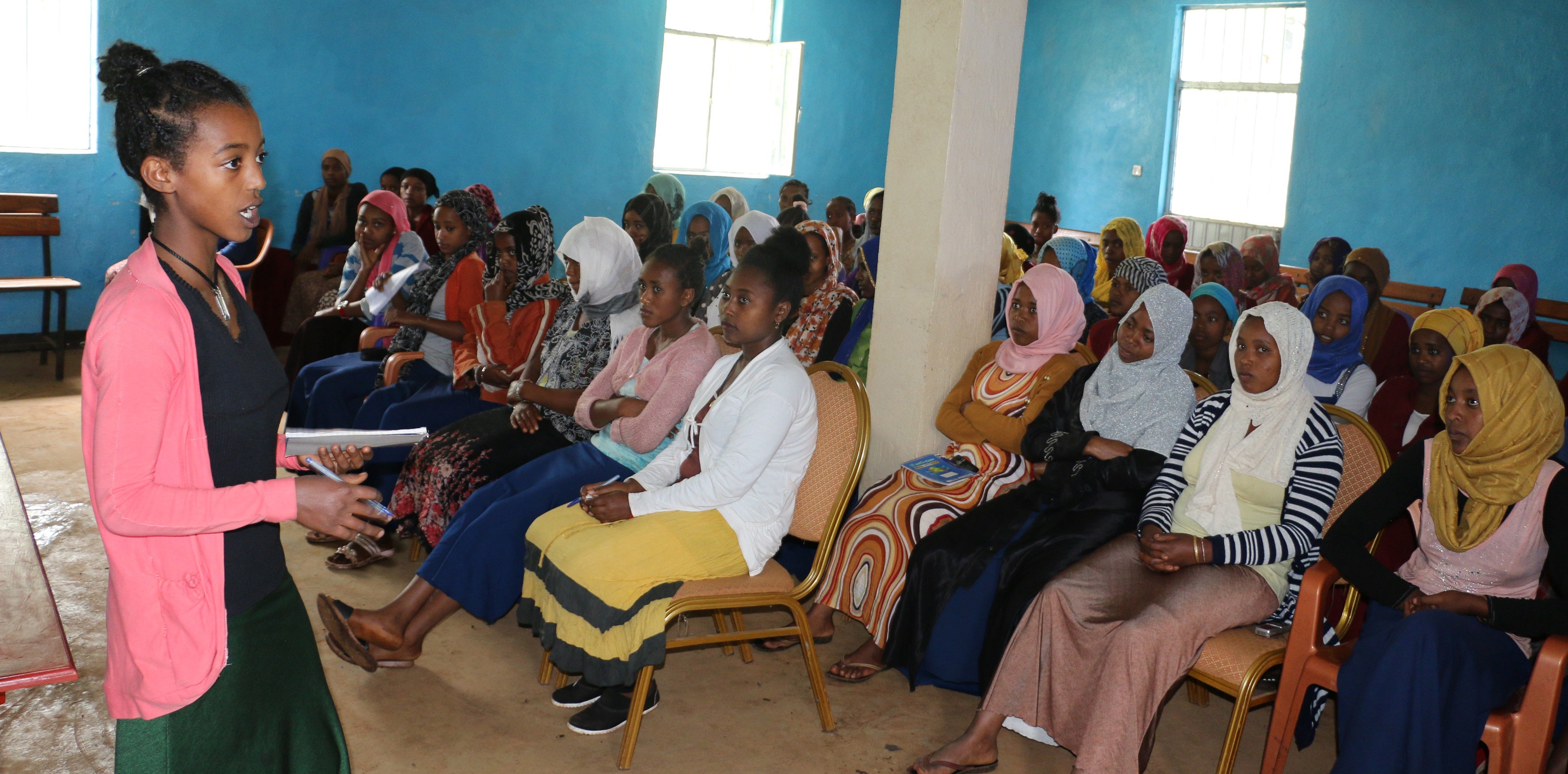News
Ethiopian girls learn the skills they need to thrive – and secure their independence
- 29 August 2018
News
SOKORU, Ethiopia – Two years ago, 16-year-old Salia Shemsu waited to be married off.
She had just failed the national exam, barring her from pursuing the education she longed for. As the first-born girl in her family, Salia was now consigned to household chores – and even this, she knew, would not last long enough.
Salia’s parents did not have the financial means to support her. Like many young girls in Ethiopia, it was only a matter of time before she would need to leave her family for a husband.
Then an opportunity she never expected arrived.
A local announcement called for young people to join an entrepreneurship programme. Salia responded immediately.
Salia’s district is among 30 in Ethiopia where a joint UNFPA-UNICEF programme is empowering vulnerable adolescent girls and boys to support themselves and make healthy decisions – by providing them with the knowledge and skills to do so.
Along with four other girls in her community, Salia enrolled in a training to learn the business of animal husbandry. Now, she earns a living in farming.
“I have become self-sufficient,” she told UNFPA.
And she is supporting others, too. “It is I buying the educational materials and school uniforms for my five younger siblings. I am also buying fertilizer for my parents for their farm work.”
Programmes that offer skills training can be life-changing for girls in Ethiopia, where 41 per cent are married by the age of 18.
Since its inception in 2007, the programme’s livelihood-support services have reached over 13 thousand young people like Salia.
Yet this is only a fraction of its overall impact.
The programme also aims to strengthen the capacity of government and non-government organizations to meet the sexual and reproductive health needs of young people, and protect against gender-based violence and other violations of reproductive rights. Through sexual and reproductive health services, HIV/AIDS prevention services and other interventions, the programme has reached roughly 5.5 million people.

Salelesh Edosa is a coordinator for one of the girls’ clubs created under the programme. Platforms such as these, Ms. Edosa says, teach young people to protect their health, well-being and dignity.
Roughly 50 girls participate in the club’s biweekly discussions, which arm girls with the knowledge required to make healthy sexual and reproductive decisions – reducing their vulnerability to sexually transmitted infections and unintended pregnancy.
And the benefits of the club are spreading. When the girls go home to their communities, says Ms. Edosa, they discuss what they’ve learned with their family and friends.
For Salia, the information she received from the girls’ club has given her the confidence to pursue her business goals – and secure her independence.
“I would have been married off by now if I didn’t get this chance,” she said.
– Abraham Gelaw